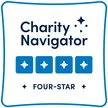Jessica Beder, Noodle.com
In life, there may be nothing worse than feeling like you’re on the outside.
Old or young, professionally or personally, the yearning to be accepted is among the most natural of all human emotions. It affects the development of our personal identities and often dictates how we measure our self-worth.
Many of us incessantly and obsessively compare ourselves to others: Sally got an A, and I got a D; Jim was promoted before me; Nancy always wins. This human impulse can deeply affect us — and children aren’t exempt.
What Do Experts Say?
Connirae Andreas, an author and psychotherapist whose work on fostering children’s success emerges from neuro-linguistic programming (NLP), points out that benchmarks for student achievement are usually based on collective averages, rather than measuring a child against his earlier performance. Without a growth model applied to individual children, it’s entirely possible for a student to make significant strides in learning that are masked by the group’s averages.
It’s for this reason that I believe one of the keys to inspiring attention-challenged students, such as those with ADHD, lies in positive collaboration; reminding kids that they are an important part of their learning community. Some educators and parents deal with these difficulties by isolating or punishing students, or by giving them individual lessons that differ from the work being done by their classmates. Many well-intentioned adults don’t realize that this can do more harm than good.
A 2008 report by the Collaborative for Academic, Social, and Emotional Learning (CASEL) examined three large reviews of studies looking at the impact of social-emotional learning programs on over 300,000 K–8 students across the U.S. Researchers concluded that integrating social-emotional teaching into the larger curricula can have substantial impacts on children’s grades, self-esteem, and behavior. In particular, those children who were taught through collaborative methods and felt comfortable with their peer relationships performed better academically.
Read more. Noodle.com



























